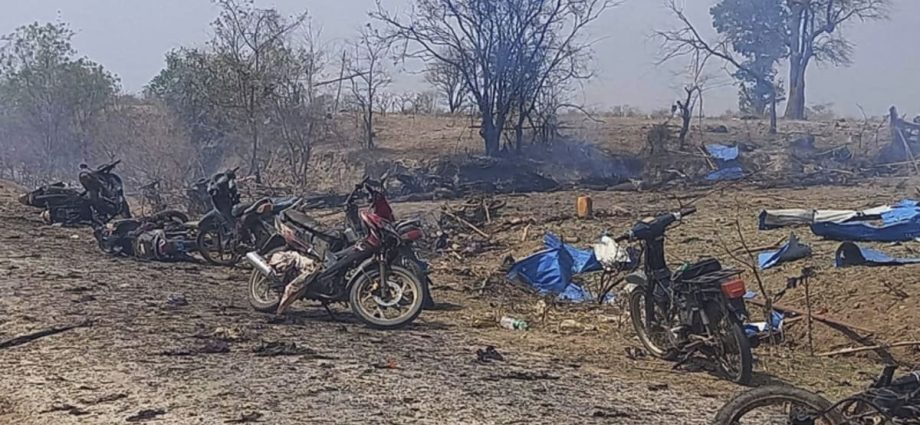
“I am hoping … they will galvanise not only the pro-democracy forces, especially from the West, but also reach out to more conciliatory forces (to the Myanmar military) in Thailand to keep ASEAN unified and on track,” he said.
He added that a new attempt must be made to bring on board China, Japan, South Korea, as well as neighbouring countries sharing a border with Myanmar.
These nations, along with organisations with investments in the country, are likely to have more suasion on the military and other actors on the ground in Myanmar.
“This is perhaps something that should be tried by ASEAN as we move forward with this very difficult and prolonged problem,” he said.
ASEAN HAS BEEN “INEFFECTUAL”
While ASEAN has been viewed as the key framework to find a way for dialogue and progress out of the crisis and violence, it has been “ineffectual”, said Professor Thitinan Pongsudhirak from the Institute of Security and International Studies at Chulalongkorn University.
“The ASEAN Five-Point Consensus has not worked. Indonesia has chairmanship, with a lot of hype and hope on it, but it’s very slow and not making forward movements,” he said.
Prof Pongsudhirak said that it is “unlikely” that ASEAN will change its strategy and that there is a lot of “global frustration” about the regional bloc now.
“Initially the international community deferred to ASEAN to deal with Myanmar on the coup and the crisis. But now that ASEAN proves impotent, ineffectual, I think the global efforts might have to go beyond us,” he told CNA’s Asia Now on Thursday.
THE FIVE-POINT CONSENSUS
Indonesia kicked off its chairmanship at the beginning of this year with the Myanmar crisis as priority. Key to Jakarta’s plan was the implementation of the Five-Point Consensus.
The Consensus is ASEAN’s peace plan for Myanmar, which was agreed on by all 10 leaders in Jakarta in April 2021, two months after the military coup.
While the Myanmar military regime has not honoured its part of the peace agreement – which includes an immediate end to violence – about two years on, Indonesia said in the past three months, it has facilitated the reopening of communication and consultation with various “stakeholders” on humanitarian aid to Myanmar.
This will allow the ASEAN Coordinating Centre for Humanitarian Assistance on Disaster Management (AHA Centre) to provide aid to those who require it in Myanmar, regardless of their ethnic background, religion or political orientation.
Providing aid through the AHA Centre is one of the items on the Five-Point Consensus. Indonesian Foreign Minister Retno Marsudi had called the development a breakthrough.

